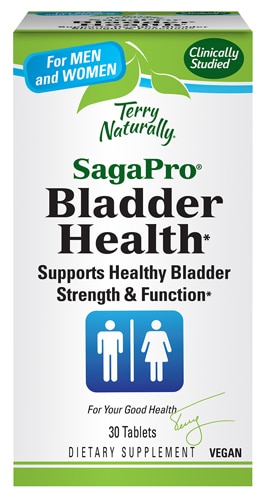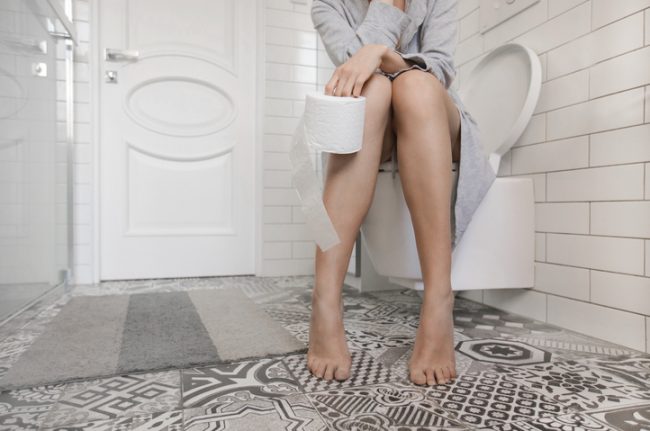Most of us give little more than cursory thought to our bladders—that is, until we really have to go or when we suspect that something may be, well, off.
But bladder health is as critical as good vision and sound digestion. Integral to disposing waste and keeping your blood clean, your bladder—a muscular sac, the size and shape of a pear, that’s located above your pelvis—acts in partnership with your kidneys, storing urine until you feel the urge to go and serving as one of the many moving parts that keep your body functioning, vital and whole.
With that in mind, how can you keep yours in tiptop shape? Here are five things every woman should know about their bladder—and signs that shouldn’t be overlooked:
1. Incontinence can strike an adult woman of any age
Forget equating Depends with the elderly—incontinence can affect a woman from 19 years of age on. Commonly divided into two chief categories—stress incontinence and urge incontinence—most women before childbirth and menopause experience the former, which results in unintentional leakage from any sort of pressure, whether it’s coughing, sneezing, or having a really good laugh with your best friend. Urge incontinence, on the other hand, is caused by “abnormal bladder contractions,” Web MD says. Irritation, spinal cord damage, and myriad diseases, like MS or diabetes, may contribute to the uncomfortable—and immediate—need to pee.
If behavioral adjustments, such as dietary changes, pelvic floor exercises and lifestyle modifications (quit smoking!) don’t diminish your symptoms, seek medical advice: That seemingly “merely annoying” incontinence may be indicative of a larger problem, such as a neurological or autoimmune disorder, the Mayo Clinic reports.
2. Your bladder’s health is linked to your BMI
Carting around extra pounds isn’t just a strain on your bones and joints: The Journal of Urology reports that it can also compromise your bladder’s ability to function optimally (and lead to incontinence as well). It makes sense, once you think about it—weight adds pressure to your bladder and may lead to both an increased need to urinate and unintentional leakage. In other words? Maintain a healthy weight through an equally healthy way of life.
3. Bladder health can be bolstered by urinating after sex
Sound like a strange tidbit of advice? Think again. Urinary tract infections account for 8.1 million doctor visits per year, with the lifetime risk of a woman having a UTI at more than 50 percent. To shield yourself against this pervasive condition, you should not only pee after sex—this simple measure helps you wash away any bacteria that may be present at the opening of your uthera—but also drink plenty of water, don’t hold in urine, cope with stress smartly and drink cranberry juice: the antioxidant-rich berry contains a potent sugar called d-mannose that naturally supports bladder cells.†
4. Hydration is key to optimal bladder function
Consuming half of your body weight in water on a daily basis may sound daunting to some but not only is it more doable than you might think (roughly eight 8-ounce glasses over the course of a day) but it’s also central to your health—including your bladder health. Drinking adequate amounts of water will cause you to urinate frequently enough to help flush through bacterial contaminants that could lead to an infection. (Indeed, dehydration is one of the major culprits than can result in an increased risk of bladder infections.)
At the same time, drink alcohol and caffeinated beverages in moderation (if at all), as both are known diuretics that may lead to incontinence. The same goes for carbonated drinks and beverages that contain artificial sweeteners, which may irritate sensitive bladders.
5. A burning sensation in your bladder should not be ignored
Women seem to have a natural propensity for overlooking aches and pains. Blame high pain tolerance (hello, childbirth) or the fact that many of us are multitaskers who place the well-being of others before ourselves. Whatever the reason may be, a burning sensation in your bladder should never be disregarded—especially if it happens when you urinate. Why?
One possible cause may be interstitial cystitis. Also called IC, this chronic inflammatory condition of the bladder may include symptoms that range from pelvic pain to frequent, urgent and painful urination. Genetics, infection, or an autoimmune condition may be at the root of it, in addition to the presence of a defect in the protective layer of the bladder wall (technically known as GAG).
A number of treatments are available—from biofeedback to dietary changes and medication—as well as natural approaches to supporting bladder health. Avoiding food allergies and food intolerances, for example, can be paramount. Additionally, herbal teas, such as marshmallow and corn silk, can help coat and soothe the mucous membrane of the bladder and uretha, while N-acetyl-glucosamine (NAG) can organically support that GAG layer.†
But most of all? Seek medical help if urinating is associated with pain. Your bladder will thank you—now and in the future.
†These statements have not been approved by the Food and Drug Administration. These products are not intended to diagnose, treat, cure or prevent disease.




